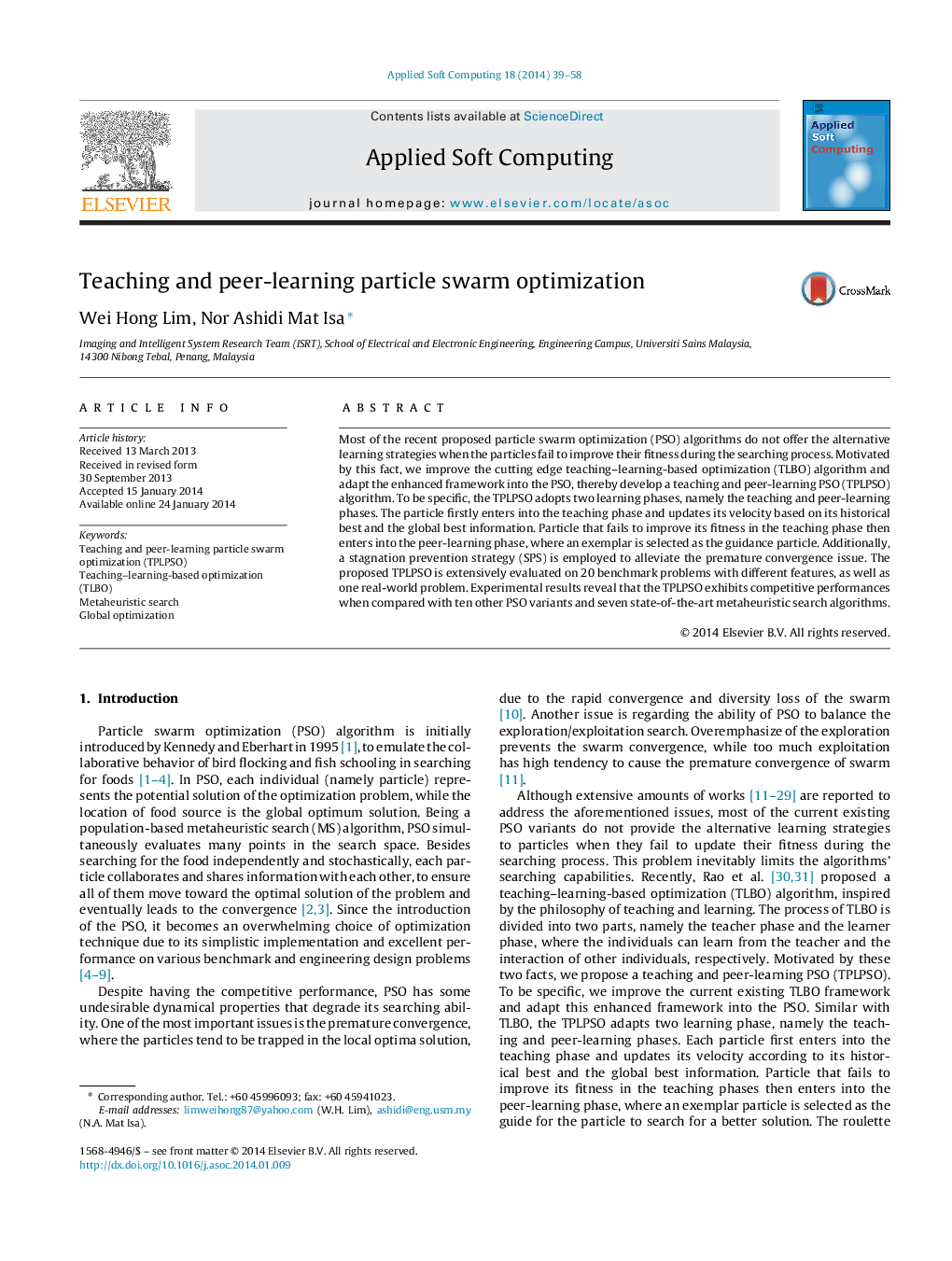| کد مقاله | کد نشریه | سال انتشار | مقاله انگلیسی | نسخه تمام متن |
|---|---|---|---|---|
| 495519 | 862829 | 2014 | 20 صفحه PDF | دانلود رایگان |
• A PSO algorithm's variant, abbreviated as TPLPSO, is proposed.
• Teaching and peer-learning framework is proposed to improve PSO's performance.
• Stagnation prevention strategy is proposed to mitigate the premature convergence.
• TPLPSO has higher searching accuracy and convergence speed during the optimization.
• Results show that TPLPSO outperforms other state-of-the-art PSO variants.
Most of the recent proposed particle swarm optimization (PSO) algorithms do not offer the alternative learning strategies when the particles fail to improve their fitness during the searching process. Motivated by this fact, we improve the cutting edge teaching–learning-based optimization (TLBO) algorithm and adapt the enhanced framework into the PSO, thereby develop a teaching and peer-learning PSO (TPLPSO) algorithm. To be specific, the TPLPSO adopts two learning phases, namely the teaching and peer-learning phases. The particle firstly enters into the teaching phase and updates its velocity based on its historical best and the global best information. Particle that fails to improve its fitness in the teaching phase then enters into the peer-learning phase, where an exemplar is selected as the guidance particle. Additionally, a stagnation prevention strategy (SPS) is employed to alleviate the premature convergence issue. The proposed TPLPSO is extensively evaluated on 20 benchmark problems with different features, as well as one real-world problem. Experimental results reveal that the TPLPSO exhibits competitive performances when compared with ten other PSO variants and seven state-of-the-art metaheuristic search algorithms.
The graphical illustration of the proposed teaching and peer-learning PSO (TPLPSO), consisting of the teaching phase, the peer-learning phase, and the stagnation prevention strategy (SPS).Figure optionsDownload as PowerPoint slide
Journal: Applied Soft Computing - Volume 18, May 2014, Pages 39–58
